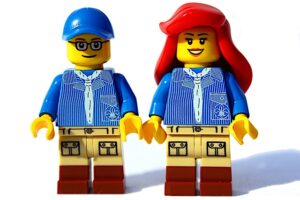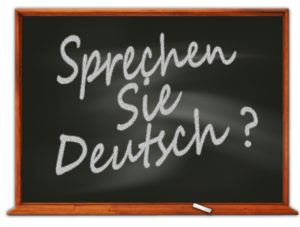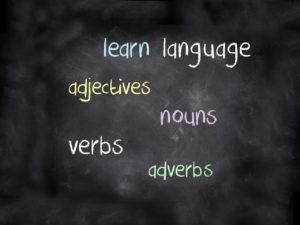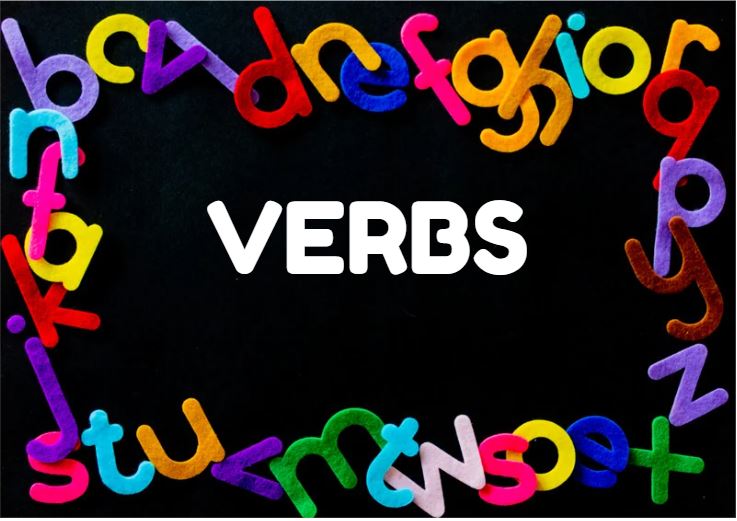Verbs are action words (e.g., to run, to eat, to learn).
In German, verbs that describe actions are known as “tun-Verben” (doing verbs) and verbs that describe a state of being are called “sein-Verben” (being verbs).
For example, “laufen” (to run) is an action verb because it describes the action of running. On the other hand, “sein” (to be) is a being verb because it describes a state of existence or identity.
Action Verbs (tun-Verben):
- Essen (to eat) – Ich esse gerne Pizza. (I like to eat pizza.)
- Lesen (to read) – Sie liest ein Buch. (She is reading a book.)
- Spielen (to play) – Wir spielen Fußball im Park. (We are playing soccer in the park.)
Being Verbs (sein-Verben):
- Sein (to be) – Du bist mein bester Freund. (You are my best friend.)
- Werden (to become) – Er wird Arzt. (He will become a doctor.)
- Bleiben (to stay) – Sie bleibt zu Hause. (She is staying at home.)
The verbs change their form depending on the Pronoun before the verb. These are words like I, me, she, you, it, they, and us. In English we use I am hungry but he is hungry. In German all verbs change depending on the pronoun, not just the sein (is/am) Hilfsverb.
Examples of relative pronouns are: which, that, whose, whoever, whomever, who and whom, and many
| Pronoun | Verb haben (have) Hillfsverb |
Verb sein (is) Hillfsverb |
Verb komme Vollverb |
Verb wollen (want to) Modalverb |
| Ich (I) | habe | bin | komme | will |
| du (you) | hast | bist | kommst | willst |
| er, sie, es (he, she, it) | hat | ist | kommt | will |
| wir (we) | haben | sind | kommen | wollen |
| Ihr (you) | habt | seid | kommt | wollt |
| Sie (they) | haben | sind | kommen | wollen |
| Sie (Formal you) | haben | sind | kommen | wollen |
Conjugation
Verb conjugation is the process of changing a verb to indicate different aspects such as tense, mood, voice, aspect, person, and number. In essence, it involves altering the form of a verb to match the subject of the sentence. This helps to convey information about when an action is taking place, who is performing the action, and other details.
For example, in English, the verb “to be” conjugates as follows:
- I am
- You are
- He/she/it is
- We are
- You are
- They are
Conjugated verbs are used to express the characteristics of person, number, tense, voice and mode in the German language.
Conjugation is the creation of derived forms of a verb. Conjugated verbs are used to express the characteristics of person, number, tense, voice and mode in the German language.
https://www.verbformen.com/conjugation/
In the German conjugation (Konjugation) system one can distinguish three main types of verbs:
1. Regelmäßige/Schwachen Verben (Regular verbs)
Regular verbs in German follow typical conjugation patterns based on the verb’s infinitive form.
They usually follow a consistent pattern when conjugated in different tenses and with different subjects.
An example of a regular verb conjugation in German is “sprechen” (to speak) in the present tense:
- Ich spreche (I speak)
- Du sprichst (You speak)
- Er/sie/es spricht (He/she/it speaks)
- Wir sprechen (We speak)
- Ihr sprecht (You speak – plural)
- Sie sprechen (You speak – formal, They speak)
Never change the root vowel during conjugation
ich mache – ich machte – ich habe gemacht
Unregelmäßige/Starke Verben (Irregular verbs)
Irregular verbs in German do not follow the typical verb conjugation pattern, so they require special attention when learning the language. They often change their stem vowel in the past tense and sometimes in the present tense. Their endings can also vary.
ich gehe – ich ging – ich bin gegangen
Here are a few examples of irregular verbs in German with their infinitive form, simple past form, and past participle form:
- Infinitive: sein
- Simple Past: war
- Past Participle: gewesen
- Infinitive: haben
- Simple Past: hatte
- Past Participle: gehabt
- Infinitive: gehen
- Simple Past: ging
- Past Participle: gegangen
- Infinitive: sehen
- Simple Past: sah
- Past Participle: gesehen
3. Gemischte Verben (mixed conjugation)
Mixed Verbs also change the root vowel, but have regular endings.
ich denke – ich dachte – ich habe gedacht
Reflexive Verben
Reflexive Verben sind Verben, die mit einem Reflexivpronomen (sich) in der Bedeutung von „sich selbst“ verwendet werden. Es gibt echte, unechte reflexive Verben und teilreflexive Verben.
Reflexive verbs are verbs that are used with a reflexive pronoun (meaning) in the sense of “oneself”. There are real, fake reflexive verbs and partially reflexive verbs.
Beispiel: Ich wasche mich.
Vollverb
Die meisten Verben des Deutschen sind Vollverben. Ein Vollverb ist ein Verb, das alleine (neben dem Subjekt) in einem Satz stehen kann. Vollverben drücken Handlungen oder Zustände aus.
Most verbs in German are full verbs. Can stand alone in sentence (next to a subject) Express actions or states
“Ich lerne Deusch
Hilfsverben
Hilfsverben bilden das Prädikat nur in Verbindung mit dem Partizip, Perfekt oder dem Infinitiv eines Vollverbs. Sie ermöglichen die Bildung der zusammengesetzten Zeitformen.
Ich bin gelaufen. Du hast gegessen. Sie wird rennen
Habe und Sein
| Präsens | Präsens | Präsens | Präteritum (simple past) |
Präteritum (simple past) |
Präteritum (simple past) |
|
| Sein | Haben | Werden | Sein | Haben | Werden | |
| Ich | Bin | Habe | Werde | War | Hatte | Wurde |
| du | Bist | Hast | Wirst | Warst | Hattest | Wurdest |
| er, sie, es | Ist | Hat | Wird | War | Hatte | Wurde |
| wir | Sind | Haben | Warden | Waren | Hatten | Wurden |
| ihr | Seid | Habtz | Werdet | Wart | Hattet | Wurdet |
| Sie / sie | Sind | Haben | Werden | Waren | Hatten | Wurden |
Modal Verben
A modal verb (also ‘modal’, ‘modal auxiliary verb’, ‘modal auxiliary’) is a type of verb that is used to indicate modality – that is, likelihood, ability, permission, and obligation. Examples include the English verbs can/could, may/might, must, will/would, and shall/should.
Können, Wollen, Müssen, Dürfen. Mochten, Sollen, Mögen
Präsens (Present Tense)
| Dürfen | Können | Mögen | Müssen | Sollen | Wollen | Möchten | |
| Ich | Darf | Kann | Mag | Muss | Soll | Will | möchte |
| du | Darfst | Kannst | Magst | Must | Sollst | Willst | möchtest |
| er, sie, es | Darf | Kann | Mag | Muss | Soll | Will | möchte |
| wir | Dürfen | Können | Mögen | Müssen | Sollen | Wollen | möchten |
| ihr | Dürft | Könnt | Mögt | Müsst | Sollt | Wollt | möchtet |
| Sie / sie | Dürfen | Können | Mögen | Müssen | Sollen | Wollen | möchten |
Präteritum (Simple Past Tense)
| Dürfen | Können | Mögen | Müssen | Sollen | Wollen | Möchten | |
| Ich | durfte | konnte | mochte | musste | sollte | wollte | wollte |
| du | durftest | konntest | mochtest | musstest | solltest | wolltest | wolltest |
| er, sie, es | durfte | konnte | mochte | musste | sollte | wollte | wollte |
| wir | durften | konnten | mochten | mussten | sollten | wollten | wollten |
| ihr | durftet | konntet | mochtet | musstet | solltet | wolltet | wolltet |
| Sie / sie | durften | konnten | mochten | mussten | sollten | wollten | wollten |
Related content

Pronouns
Pronouns are words that take the place of a noun. Words like I, me, she, you, it, herself. Additionally, you get Relative and possessive pronounsRelative

German Grammar and Language
Here are some links to German Grammar information.It is a compilation of information I gathered over time. I hope you find it useful. Please notify

Learning German
There are several approaches to learn German, all of which can help you achieve your language learning goals. You can opt for convenient online sites



You must be logged in to post a comment.